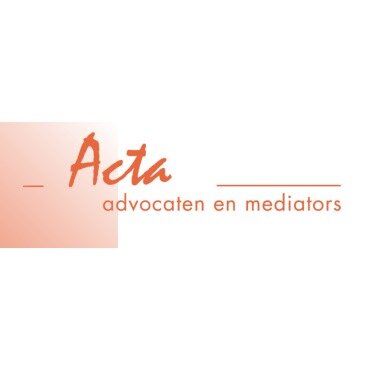Best Child Visitation Lawyers in Nijmegen
Share your needs with us, get contacted by law firms.
Free. Takes 2 min.
Free Guide to Hiring a Family Lawyer
List of the best lawyers in Nijmegen, Netherlands
About Child Visitation Law in Nijmegen, Netherlands
Child visitation, also known as parenting time, refers to the right of a non-custodial parent or guardian to spend time with their child after a separation or divorce. In Nijmegen, Netherlands, child visitation is governed by specific laws and regulations.
Why You May Need a Lawyer
There are several situations where you may require legal help in matters relating to child visitation. Some common scenarios include:
- Disputes between parents or guardians regarding visitation schedules
- Modification of existing visitation arrangements
- Enforcement of visitation rights
- Interference with visitation by one parent or guardian
- Relocation of one parent or guardian
Local Laws Overview
When it comes to child visitation in Nijmegen, Netherlands, the following key aspects of local laws are particularly relevant:
- Child visitation should primarily serve the best interests of the child.
- Parents or guardians are encouraged to come to an agreement regarding visitation schedules through mediation or negotiation.
- If an agreement cannot be reached, the court may intervene and make a decision based on the child's best interests.
- Visitation arrangements can be modified if there is a significant change in circumstances.
- Violation of visitation rights may result in legal consequences.
Frequently Asked Questions
1. How does the court determine child visitation arrangements?
The court considers various factors such as the child's age, wishes, and the ability of parents/guardians to cooperate. They prioritize the best interests of the child when making visitation decisions.
2. Can visitation arrangements be modified?
Yes, visitation arrangements can be modified if there is a significant change in circumstances. However, it is advisable to seek legal advice before initiating any modifications.
3. What if one parent interferes with the visitation rights of the other parent?
If one parent or guardian interferes with the visitation rights of the other, legal action can be taken. It is important to document any violations and consult with a lawyer to take appropriate steps.
4. Are grandparents entitled to visitation rights?
In certain circumstances, grandparents may be granted visitation rights if it is deemed to be in the best interests of the child. However, the court evaluates each case individually.
5. What resources are available for assistance with child visitation matters?
The following resources can be helpful for someone in need of legal advice or assistance in child visitation matters:
- Nijmegen Family Court
- Nijmegen Mediation Services
- Netherlands Legal Aid Board
Next Steps
If you require legal assistance in child visitation matters, it is recommended to take the following steps:
- Gather all relevant documents and information related to your case.
- Contact a qualified lawyer specializing in family law and child visitation.
- Schedule a consultation to discuss your situation and receive advice tailored to your specific circumstances.
- Follow your lawyer's guidance and take the necessary actions to protect your rights and the best interests of your child.
- Maintain open communication with your lawyer throughout the process to ensure the best possible outcome.
Lawzana helps you find the best lawyers and law firms in Nijmegen through a curated and pre-screened list of qualified legal professionals. Our platform offers rankings and detailed profiles of attorneys and law firms, allowing you to compare based on practice areas, including Child Visitation, experience, and client feedback.
Each profile includes a description of the firm's areas of practice, client reviews, team members and partners, year of establishment, spoken languages, office locations, contact information, social media presence, and any published articles or resources. Most firms on our platform speak English and are experienced in both local and international legal matters.
Get a quote from top-rated law firms in Nijmegen, Netherlands — quickly, securely, and without unnecessary hassle.
Disclaimer:
The information provided on this page is for general informational purposes only and does not constitute legal advice. While we strive to ensure the accuracy and relevance of the content, legal information may change over time, and interpretations of the law can vary. You should always consult with a qualified legal professional for advice specific to your situation.
We disclaim all liability for actions taken or not taken based on the content of this page. If you believe any information is incorrect or outdated, please contact us, and we will review and update it where appropriate.










